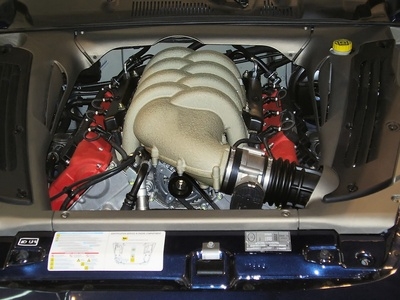
Modern engines use various checks and balances to adjust the fuel-to-air ratio inside the combustion chambers. If the engine manages this ratio poorly, many problems can arise---including permanent engine damage.
Under normal circumstances, an engine needs roughly 14 times as much air as gasoline to burn a fuel-air mixture completely. The combustion process occurs when the oxygen in the air combines with the carbon atoms in the fuel. As engine speed and load change, this ideal ratio will also vary slightly and will undergo adjustments based on momentary demands by the engine computer.
The fuel-to-air ratio becomes "rich" when the mixture contains more fuel than ideal. While it may sound counterintuitive, this condition leads to sluggish engine performance and may harm the spark plugs over time. Naturally, it will also increase fuel consumption.
A lean mixture contains an insufficient amount of fuel given the quantity of air. This condition leads to a rough idle and, in more extreme cases, stalling of the engine. It can also result in overheating because the spraying of fuel into the intake port or directly into combustion chambers has a cooling effect on the engine.